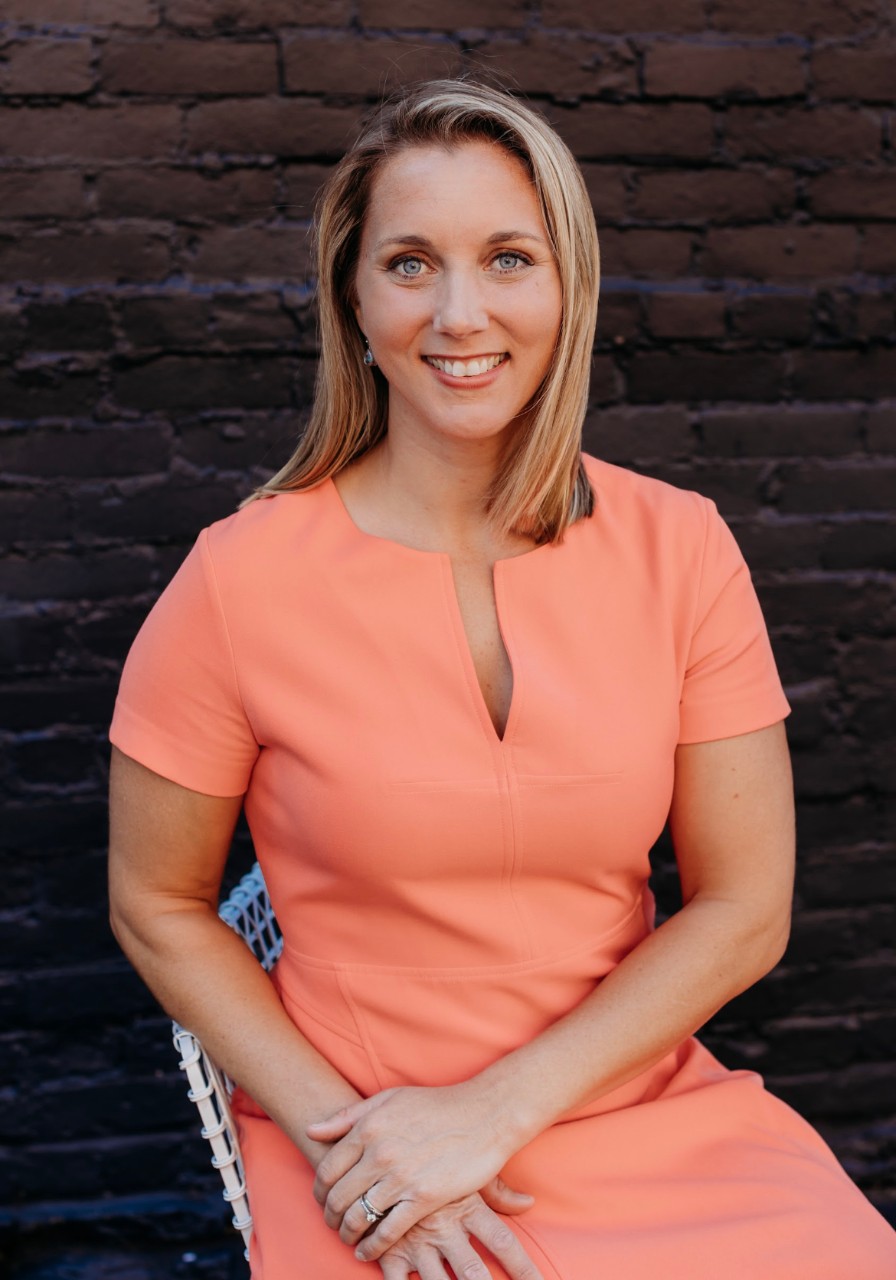
From literature to AI: UC grad shares career path to success
Humanities and storytelling lead to lucrative tech entrepreneurship
Before Katie Trauth Taylor worked with international organizations like NASA, Boeing and Hershey, and before receiving accolades for her work in the generative AI space, she was in a much different industry: English and literature.
Taylor earned her master's in English and Comparative Literature in UC’s College of Arts and Sciences. She completed her educational journey at Purdue University with a doctorate degree in rhetoric and composition. After working as a graduate assistant at Purdue and UC, she became a research professor at Miami University.
It might seem from there that her career was set — perhaps a tenured professorship or a university administrative position. That might have been her path, but Taylor had her eyes set on different goals.
So how did Taylor transition from literature and composition to tech entrepreneurship? She enjoys sharing that part of her story.

A&S masters grad Katie Trauth Taylor, who has launched two businesses. Photo/Provided
“I love that question, and I think it's so important for everyone in the humanities to see that they have just as much entrepreneurial potential as any other person.”
Taylor founded Untold Content in 2015, jumping from academia to entrepreneurship. Untold Content is a business-to-business content strategy company that recognizes storytelling patterns and frameworks that will help innovative companies make their ideas clear, compelling and impactful to an audience.
She then took innovation to the next level in 2022 with the launch of Narratize, a generative-AI storytelling platform that transforms the ideas of scientific, technical and medical innovators into impactful and detailed content and stories quickly.
It's so important for everyone in the humanities to see that they have just as much entrepreneurial potential as any other person.
Katie Trauth Taylor Entrepreneur and A&S master's grad in English
English to entrepreneurship
With 10 years of successful partnerships with lucrative companies like AAA and Boeing, Taylor is just getting started. And yet, it took a while for her to get here.
“I think sometimes we feel stuck — like, ‘I have to follow a path because I made us a choice about what to major in or what to study.’
“But really, once you get out into the workforce, you see that everything is almost interdisciplinary and you can see and cut across those boundaries more seamlessly as long as you're a strong critical thinker, a great communicator and hungry to constantly learn.”
Taylor was just that person during college. As she matriculated through her institutions, she formed bonds and met many mentors along the way who pushed her towards starting her own business.
“I think wherever you want to grow in your professional life, you just have to ask those questions. Ask, ‘what do I need to learn to get there and find my mentors?’ And sometimes, mentors are thrust upon you in the most wonderful ways. And it surprises you,” said Taylor.
Along the way she continued her love for storytelling and sharing that passion. And yet, she felt that she could help scientists, tech moguls and medical professionals share their stories in more effective and impactful manners.
“I had a mentor somewhere along the way, who said ‘look me in the eyes. You know, you could just start a business, right?’”
And Taylor did just that with Untold Content while she was a research professor at Miami University. Untold Content kept growing and growing, so she made her decision and pursued her new passion fulltime, as the leader of the then up-and-coming narrative storytelling strategy company.
Making her mark in tech
“I never got a business degree, but here I am running my second company,” Taylor said.
The generative AI leader took herself into a new avenue of business and networking. However, she identified the potential of using generative AI to push the ideas of innovators in science, technology and medicine into impactful storytelling and long-form content. As such, she found what would be her company’s foothold in the tech industry.
“We came to generative AI as a way to solve a problem that we had already discovered, so we already knew the problem. The problem was, it is so challenging to communicate effectively within science, tech and medical industries, and there are so many roadblocks related to that,” said Taylor.
“I've always been in love with that problem. So, we were in this really intensive moment in my first company where we were trying to ask ‘how do we solve that problem at scale?’And so, we were designing tech platform for communicating internally and help people craft more clear and impactful messages.”
She received the perfect gem of knowledge pertaining to this issue during her time at UC from associate professor of English Laura Micciche — a lesson at the basis of her women-led companies.
UC for me was completely life-changing. The people I met were the most generous and thoughtful subject-matter experts that I have ever met, and they remain strong forces in my success today.
Katie Trauth Taylor A&S alum, tech entrepreneur
“Laura Micciche taught me about rhetoric and composition and the way that words hold power and how they structure society and public rhetoric the way they shape opinion,” Taylor said.
Taylor and her company never left their storytelling roots. Her team consists of data scientists, engineers and ‘narrative scientists,’ people who are science, tech and medical communicators with journalistic and marketing backgrounds.
“Narrative scientists see the way words make meaning. And that is essentially the design of the predictive models,” said Taylor. “That is the most exciting, possible moment to be able to bring those diverse skill sets together. That's where the magic happens with Gen AI. And that's where we see solutions that will actually be transformative.”
The teams at Narratize and Untold Content continue with these tenets in mind under Taylor’s leadership.
To the future
Narratize and Untold Content work to help a variety of stakeholders understand the ideas and insights of innovators around the world, from consumers to potential investors. However, given the recent surge in open AI, creatives like journalists and marketers are concerned.
AI software continues to evolve, and as technology advances, it is inevitable that jobs may be lost. And yet, Taylor has her own response to this question: ‘What happens to creatives as AI continues to get better?'
“It's the question everybody is asking. How do we keep pace with this rapid rise of technology? We set out really early on to ask how do we empower people? How do we do AI with good intent?”
One of the major pillars of both companies is to keep AI in the hands of creatives and to ensure AI is nothing but human-led.
“And that means that we design the user experience to pull insights from the person and to support the person in their workflow and embed the AI into those workflows so they can be more effective in their work and do that more efficiently.”
The focus is on teaching and empowering creatives with generative AI, and according to Taylor, the best path forward is through embracing AI and maintaining focus on amplifying storytelling. An emphasis on focus that she strengthened during her time at UC.
"UC for me was completely life-changing. The people I met were the most generous and thoughtful subject-matter experts that I have ever met," Taylor said, "and they remain strong forces for my success today."
Featured image at top: Graphic representation of artificial intelligence. Credit/Steve Johnson on Unsplash.

By Serigne Thiam
Student Journalist, A&S Department of Marketing and Communication
artscinews@ucmail.uc.edu
Related Stories
From literature to AI: UC grad shares career path to success
April 23, 2024
Before Katie Trauth Taylor worked with international organizations like NASA, Boeing and Hershey, and before receiving accolades for her work in the generative AI space, she was in a much different industry: English and literature.
Spectrum News: UC graduate creates personal styling app
March 4, 2024
University of Cincinnati alumna Camryn Ellis plans to release her virtual closet and personal styling app to the public by the end of March, Spectrum News reported.
UC student aims to make AI more explainable, trustworthy
July 11, 2024
Artificial intelligence systems have quickly advanced and can answer just about any question, but how they come to their decisions often isn't understood, even by the people who create the AI. Lynn Pickering, a University of Cincinnati alumna who is working on her PhD at UC, wants to make sure AI is used safely and responsibly. She wants people to be able to review how AI models come to their answers and ensure humans have opportunities to make final decisions, not the machines.